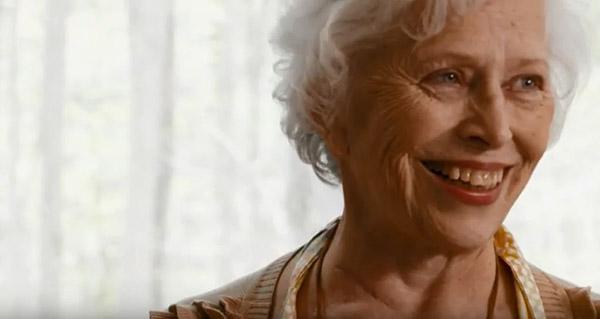
Was it Alzheimer’s disease? Vertigo? Thelma Cooper didn’t know what was causing her blackouts, memory lapses, and debilitating nausea, and the lack of answers drove her into a depression.
The intense dizziness – she described it as being slung off a Ferris wheel – made it impossible for Thelma to even walk to the bathroom by herself. “You get to where you don’t care if you live or die,” she said. “You sit there and let the dirt pile up.”
Finally, an ear, nose, and throat specialist told Thelma her symptoms might be stemming from a vascular problem, and referred her to Duke Neurosurgery.
A diagnosis
After Thelma’s first appointment with Fernando Gonzalez, MD, cerebrovascular specialist at Duke Neurosurgery, she and her daughters immediately felt they had found someone who could give Thelma her life back. But it would not be easy.
Gonzalez and his colleague, Ali Zomorodi, MD, found that the blood vessels supplying Thelma’s brain were occluded. There was not enough blood getting to her brain, and oddly, when she turned her head she fainted.
The pair decided that the best course of treatment would be a transposition of the blood vessels – essentially bypassing the obstruction so that the blood could travel through. It was new territory for both neurosurgeons and for Duke.
Complexities ahead
Thelma and her daughters, Anna Roberts and Connie Bowman, knew the procedure was high risk and complex, but Thelma was undeterred. “I had no life. I had no life at all. I knew the risk, but I didn’t have any other choice or chance,” said Thelma.
“I had no life. I had no life at all. I knew the risk, but I didn’t have any other choice or chance,” said Thelma.
Before surgery could be scheduled, however, Thelma’s care team needed to address another layer of complexity. Because of her religious beliefs, Thelma needed an alternative to a blood transfusion, so specialists from the Duke Center for Blood Conservation were called in to consult. “They allowed me to focus on what I do best, and they take care of the part that they do best, which is to make it safe for us to take care of patients who can’t take blood products from transfusions,” said Zomorodi.
Rejuvenated
Thelma’s operation was successful. The next, she was able to walk to the bathroom. “I hadn’t walked to the bathroom for a year and a half by myself,” she said. Two days after surgery, she was able to go home.
“In less than 48 hours,” said Connie, “She went from a miserable, depressed burdened woman to happy and glad to be alive.”
“I’ve been rejuvenated,” said Thelma. “It’s like I’m 40 years old instead of 80.”